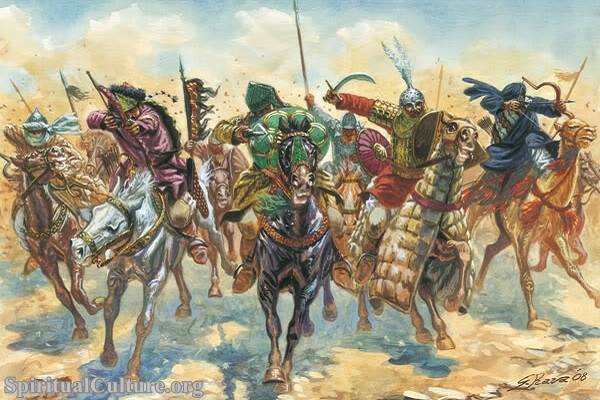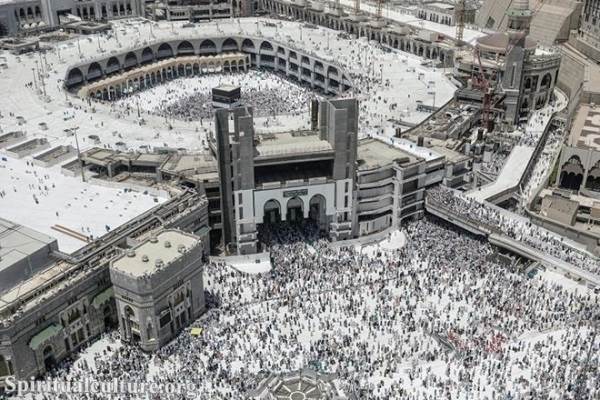From the deserts of the 7th-century Arabian Peninsula to the flourishing intellectual centers of Baghdad, Córdoba, and beyond, Islam has always treated knowledge not merely as information, but as illumination. For centuries, Islamic civilization stood at the crossroads of faith and reason — not as opposing forces, but as twin lights guiding the soul and society. This article explores how Islam approaches science and knowledge: not as a modern compromise or historical footnote, but as a sacred duty and a timeless expression of God’s will.
The Quest for Knowledge in Islam: A Sacred Duty
In the Islamic worldview, seeking knowledge is not optional. It is an act of worship.
The Prophet Muhammad (peace be upon him) famously said:
“Seeking knowledge is an obligation upon every Muslim.”
— Sunan Ibn Majah 224
This includes both religious knowledge and worldly knowledge — science, medicine, astronomy, mathematics, and more. Islam does not separate the secular from the sacred; all beneficial knowledge is seen as part of divine guidance.
Revelation as the First Teacher
The very first verse revealed to the Prophet Muhammad began with the command to read:
“Read in the name of your Lord who created.”
— Qur’an 96:1
It was not a command to fight, to build, or to judge — but to read. This single word marks Islam’s foundational emphasis on learning, literacy, and reflection.
Divine Signs in the Cosmos
The Qur’an constantly invites human beings to observe, reflect, and understand the natural world:
“Indeed, in the creation of the heavens and the earth, and in the alternation of the night and day, are signs for those of understanding.”
— Qur’an 3:190
The universe is full of ayat — signs of God — waiting to be read and interpreted. In this sense, the universe itself is a kind of scripture.
Science in Islamic Civilization: A Golden Age of Integration
Between the 8th and 14th centuries, the Islamic world became a global center of scientific inquiry, surpassing Europe in many fields. This golden age was not a historical anomaly, but a flowering of Islam’s deep intellectual and spiritual ethos.
Knowledge as Trust (Amanah)
In Islam, knowledge is considered an amanah — a trust from God. It must be pursued with sincerity and used for the benefit of creation.
Muslim scientists such as:
- Al-Khwarizmi (father of algebra),
- Ibn Sina (Avicenna, master of medicine),
- Al-Haytham (pioneer of optics), and
- Jabir ibn Hayyan (father of chemistry)
did not see themselves in conflict with their faith. They viewed their scientific work as a continuation of the Qur’anic call to observe, understand, and serve creation.
The Role of the Mosque and the Madrasah
Unlike modern divisions between science and spirituality, the early Islamic world saw mosques and madrasahs (Islamic schools) as centers of both religious and scientific learning.
Students studied:
- Qur’an and Hadith
- Grammar and Logic
- Astronomy and Medicine
- Mathematics and Philosophy
They did so not to secularize the world but to sacralize their understanding of it.
Theological Foundations: Tawhid, Balance, and Intention
Islam’s approach to science is rooted in its core theological principles.
Tawhid: Unity of God, Unity of Truth
The doctrine of tawhid — the oneness of God — implies that all truths, whether revealed through scripture or discovered through science, come from the same Source. There can be no ultimate contradiction between true faith and true science.
If there appears to be a contradiction, it may be due to:
- Misinterpretation of scripture
- Incomplete or flawed scientific understanding
In Islam, both revelation and reason are valid tools — but both require humility.
Mizan: The Principle of Balance
The Qur’an says:
“And the sky He raised, and He set the balance (mīzān).”
— Qur’an 55:7
This concept of balance extends to ecosystems, moral decisions, and intellectual inquiry. Science, when conducted within the bounds of ethics, serves humanity without destroying it.
Niyyah: The Intention Behind Inquiry
Knowledge in Islam must be pursued with niyyah — pure intention. Knowledge without wisdom, or knowledge used for harm, is seen as a form of corruption. The Prophet Muhammad warned against “knowledge that does not benefit.”
Challenges of Modernity: Bridging Faith and Science Today
As the modern world advances technologically, a tension sometimes arises between scientific claims and religious traditions. However, Islam continues to offer a framework for dialogue rather than division.
Evolution, Cosmology, and Ethics
Contemporary Muslim scholars and scientists engage with topics such as:
- The theory of evolution
- Big Bang cosmology
- Artificial intelligence and bioethics
These are not automatically dismissed but are weighed carefully within both theological and scientific frameworks. Islam invites critical thought, provided it does not lead to arrogance or spiritual blindness.
Environmental Stewardship
Modern environmental science echoes Islamic teachings on stewardship:
“It is He who has made you successors upon the earth…”
— Qur’an 35:39
Muslim scientists and activists today are increasingly invoking Islamic ethics to support ecological sustainability, conservation, and climate justice.
A Spiritual Lens on Scientific Inquiry
Science, when stripped of meaning, can lead to nihilism or misuse. Islam insists that science must always serve something greater than itself — it must serve the human soul, society, and the Divine order.
The Heart and the Intellect
In Islamic epistemology, qalb (the heart) is a seat of understanding — not just emotion. True knowledge touches both the mind and the heart. A person who memorizes scientific facts but forgets humility, gratitude, or purpose has not truly learned.
“They have hearts with which they do not understand…”
— Qur’an 7:179
Ihsan: Excellence in Every Discipline
Islamic tradition encourages ihsan — spiritual and practical excellence. A Muslim scientist, engineer, or doctor should strive not only to be skilled but to embody integrity, compassion, and humility. These are seen as forms of worship.
What This Means for You
In a world where science is sometimes seen as cold, and religion as outdated, Islam offers a third way: a vision where knowledge is light, and science is service.
As Spiritual Culture, we invite you to reflect on this:
- What if your thirst for knowledge was itself a form of worship?
- What if your curiosity was not random, but part of your soul’s call to remember?
- What if the next time you observed the stars, studied the brain, or opened a book, you said: “In the name of my Lord who taught me by the pen”?
Faith and reason are not enemies.
In the Islamic tradition, they are companions on the same journey —
a journey from the outer world to the inner self, and ultimately, to the Divine.
Spiritual Culture gently invites you to explore more:
Science is not just data. It is a doorway to awe.
Knowledge is not just power. It is a path to peace.
And the universe is not silent. It is singing God’s name.
Let that inspire your next question — and your next step.





